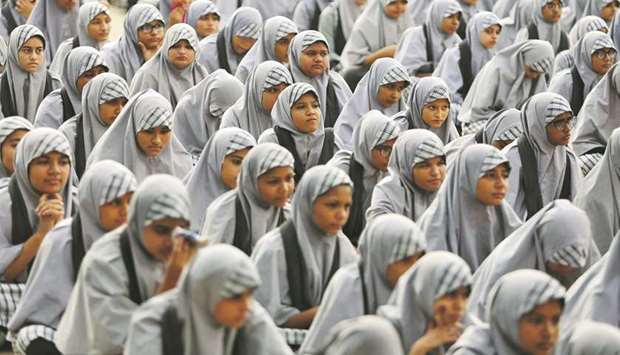Amnesty International’s chief has vowed that the rights group would not be silenced on raising concerns about Jammu and Kashmir despite what he called intimidation by Prime Minister Narendra Modi’s government.
India’s financial crime investigators recently accused Amnesty’s local branch of violating foreign exchange regulations through taking money from its London-based parent.
That claim came after Amnesty vocally criticised Modi’s government on Kashmir, which was India’s only Muslim-majority state until New Delhi stripped its autonomy last month.
“The Modi government has made a very big attempt to crush Amnesty in India,” Kumi Naidoo, Amnesty International’s secretary-general, said on a visit to Washington.
“On the Kashmir question, on various human rights questions in India itself, we are not intimidated,” he said.
“While our colleagues in our Indian office are under stress, they are as committed, motivated and courageous as ever, if not more, as a result of the repression that we face.”
Modi’s government has cracked down on foreign non-governmental organisations since coming to power in 2014, suspending or banning thousands of groups, many working in health or the environment, for receiving money from abroad.
Naidoo, however, said that Amnesty - whose Bengaluru office was raided last year - would survive in India as it has funding from local donors.
Amnesty has faced heated criticism from India’s right-wing for its stance on Kashmir, where authorities have largely shut down the Internet, mobile service and initially also landlines.
“It is a horrific thing to actually cut people’s legitimate way of communicating with each other completely,” Naidoo said.
“There are life-and-death issues associated with doing that. Whether it is family members needing to communicate with each other, being able to go to the doctor’s, this is something that governments need to stop doing,” he said.
“And, sadly, there are more and more governments doing it, and we need to speak out against this very strongly.”
India argues that the measures are temporary and have helped ensure calm in Kashmir.
On Monday, former Jammu and Kashmir chief minister Farooq Abdullah, seen as being pro-India, was formally arrested under a law allowing him to be held for up to two years without charge.
Abdullah, 81, has been under house arrest since early August, but on Monday he was formally arrested under the Public Safety Act (PSA) and his home turned into a “judicial lockup”.
It is the first confirmed case of a Kashmiri politician being arrested under the PSA since India’s August 5 move when it sent tens of thousands of troops to Kashmir and imposed a communications blackout.
The PSA was introduced in the 1970s - under Abdullah’s father Sheikh Abdullah - to prevent timber smuggling but since an uprising against Indian rule erupted in 1989 it has been used to detain thousands of people, activists say.
The UN human rights office said in 2018 that special laws in Kashmir including the PSA “have created structures that obstruct the normal course of law, impede accountability and jeopardise the right to remedy for victims of human rights violations”.
Amnesty International in June said that the PSA “circumvents the criminal justice system in Jammu & Kashmir to undermine accountability, transparency, and respect for human rights”.
In New Delhi, former Congress president Rahul Gandhi accused the government of trying to remove nationalist leaders to create political vacuum that will be filled by terrorists.
He also demanded the immediate release of Abdullah .
In a series of tweets Gandhi said, “It’s obvious that the government is trying to remove nationalist leaders like Farooq Abdullahji to create a political vacuum in Jammu and Kashmir that will be filled by terrorists. Kashmir can then permanently be used as a political instrument to polarise the rest of India.”
In another tweet, the Congress leader said, “The government should stop creating space for terrorists in Jammu and Kashmir and release all nationalist leaders ASAP.”

Schoolgirls listen to their teacher during a lecture on the Article 370, a special constitutional status for Kashmir which was scrapped by the government last month, at a school in Ahmedabad yesterday.
